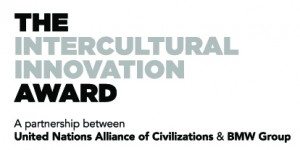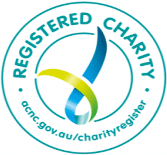What can I do?
If you have experienced or witnessed racial discrimination during a sporting event, there are a variety of ways to report it.
Speak up
If you are a witness of racism in a sporting event and you think it is safe, you should speak up against the discriminatory act or comment and express support for the target. It may also be useful to collect evidence of the incident (such as a recording on your mobile phone) and share this with the target should they wish to make a complaint.
Contact the venue or the club
Although the venue of the event or the club whose player and/or supporter is responsible for the discriminatory act may not be responsible for the act, it is important to contact them about the incident, so they can take measures to prevent future discrimination.
Take your case to a federal or state court
Any matter related to racism can be reported to the Australian Human Rights Commission (AHRC) or other state anti-discrimination bodies. You can click here for more information about how to make a complaint to the AHCR or to a state body.
After you have done that, in some cases it might be possible for you to take your case to court. As court procedures can be complicated and vary greatly from state to state, we recommend that if you wish to seek redress through the court system, you first seek advice from your nearest Community Legal Centre and/or Legal Aid to get further assistance on how and to whom you should make a complaint.
Before making the decision to start a court procedure, it is important to keep in mind that these procedures can be quite costly and lengthy. If this does not seem to be the best option for you, there are alternative dispute resolution methods available at anytime.
Go to the police
In some cases, a racially discriminatory act will constitute a crime and can be reported to the police. Which acts constitute a crime will vary depending on the state or territory you are in. If you wish to go to the police, we advise that you consult with a lawyer or a trusted police station first.
Research
Sport is one of Australia’s biggest past-times, and research shows that participation in sport helps to increase social cohesion among participants. Yet one in five people experience racism at sports-related events (Ferdinand A, Kelaher M & Paradies Y 2013).
The law
While the Racial Discrimination Act (RDA) does not explicitly address sporting events, it makes it unlawful for a person who provides goods or services to the public to discriminate against someone for their race, colour or national or ethnic origin by:
- Refusing to provide the good or service;
- Providing the good or service on less favourable terms and conditions; or
- Providing the good or service in an unfair manner.
Provision of goods or services include, among others, banking and insurance services, professional services (e.g. services provided by lawyers or doctors), shops, restaurants, hotels and entertainment (e.g. sporting events). This would cover situations in which a person is discriminated against during the provision of any service at a sporting event.
The RDA further makes it unlawful for a person to incite the doing of an unlawful discriminatory action. In addition to the Act, the Criminal Code Act 1995 criminalises the act of urging a person or group to use force against a specific racial, religious, national or ethnic group or the members thereof (Chapter 5, Subdivision C, 80.2A and 80.2B). These provisions apply to situations in sporting events in which one or more spectators encourage or incite racially discriminatory acts against another spectator or player.
Information on race-based inclusion in sports and what actions teams and clubs can take to avoid discrimination can be found at the Play by the Rules website. For those in Victoria, the Victorian Equal Opportunity & Human Rights Commission also explains discrimination in sport based on the Equal Opportunity Act 2010.


